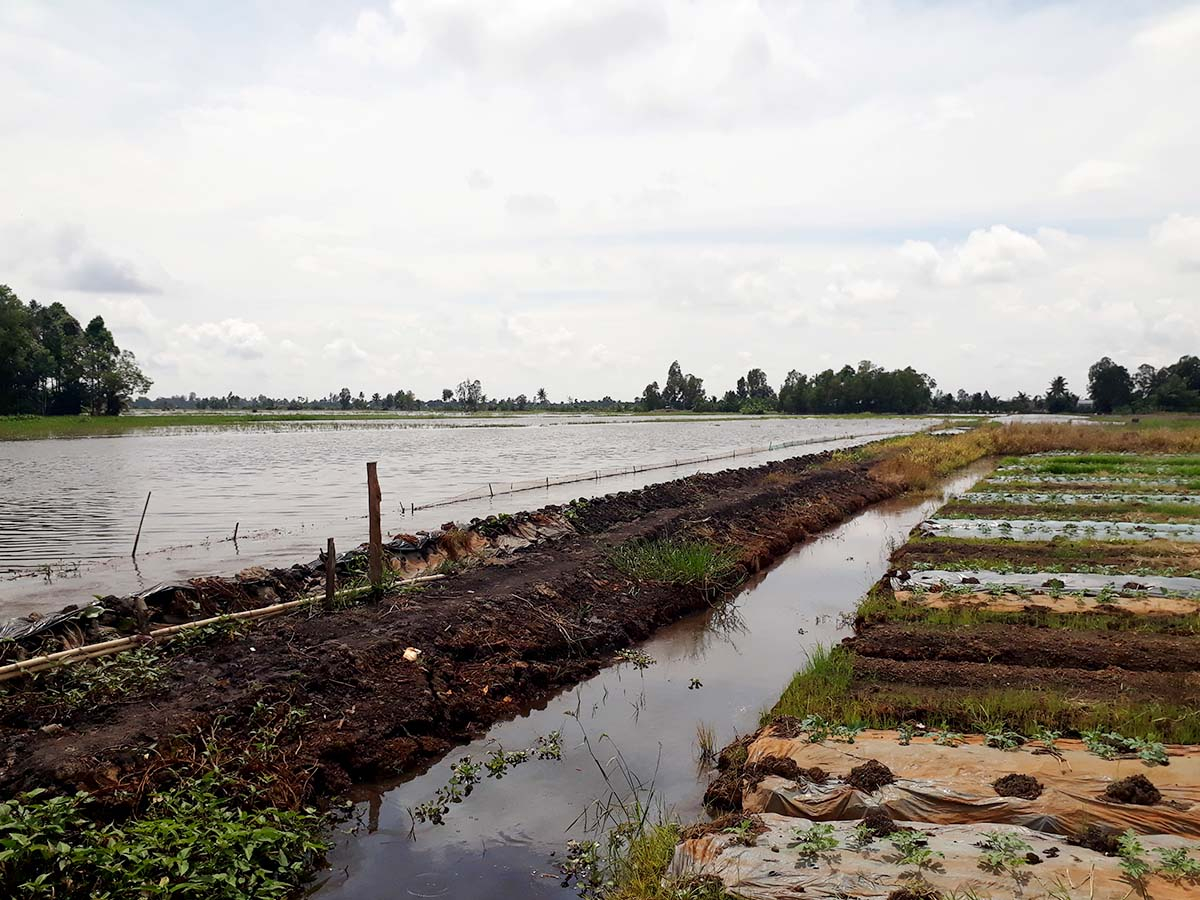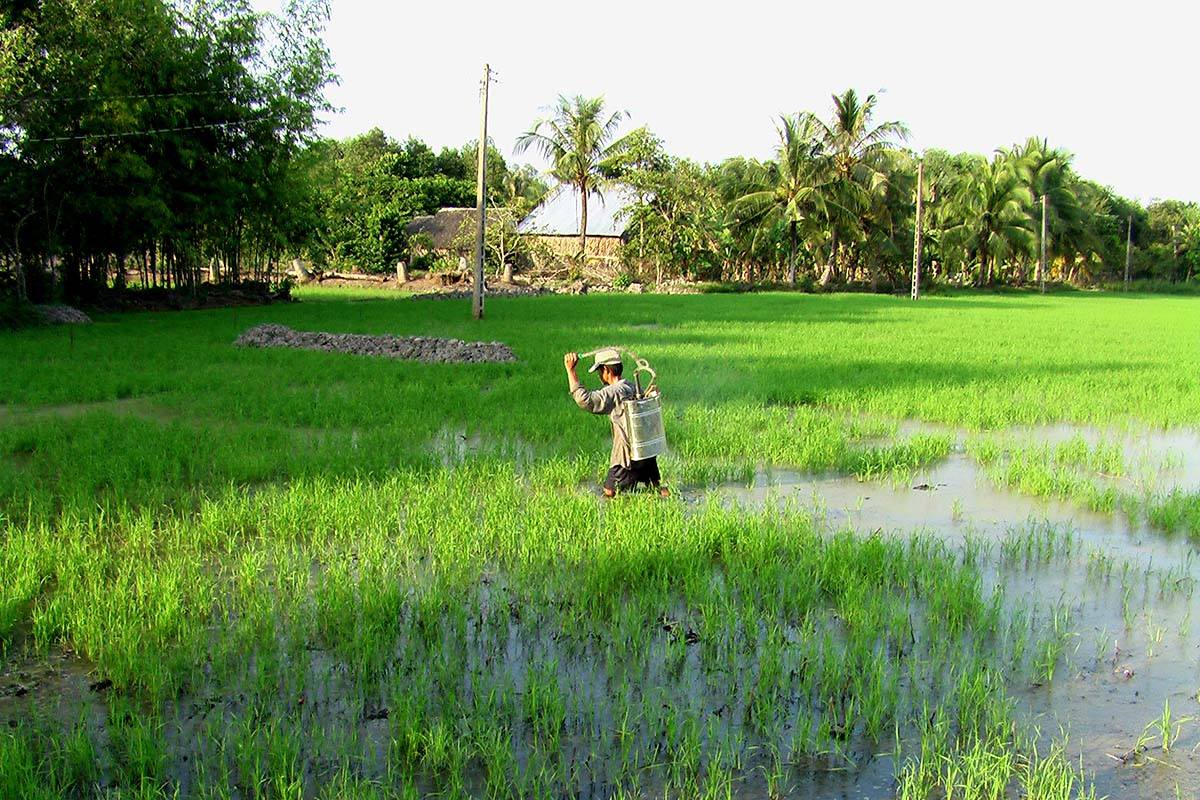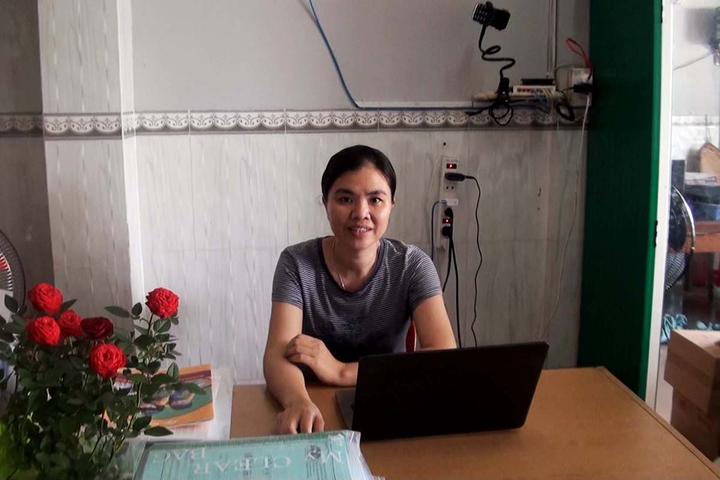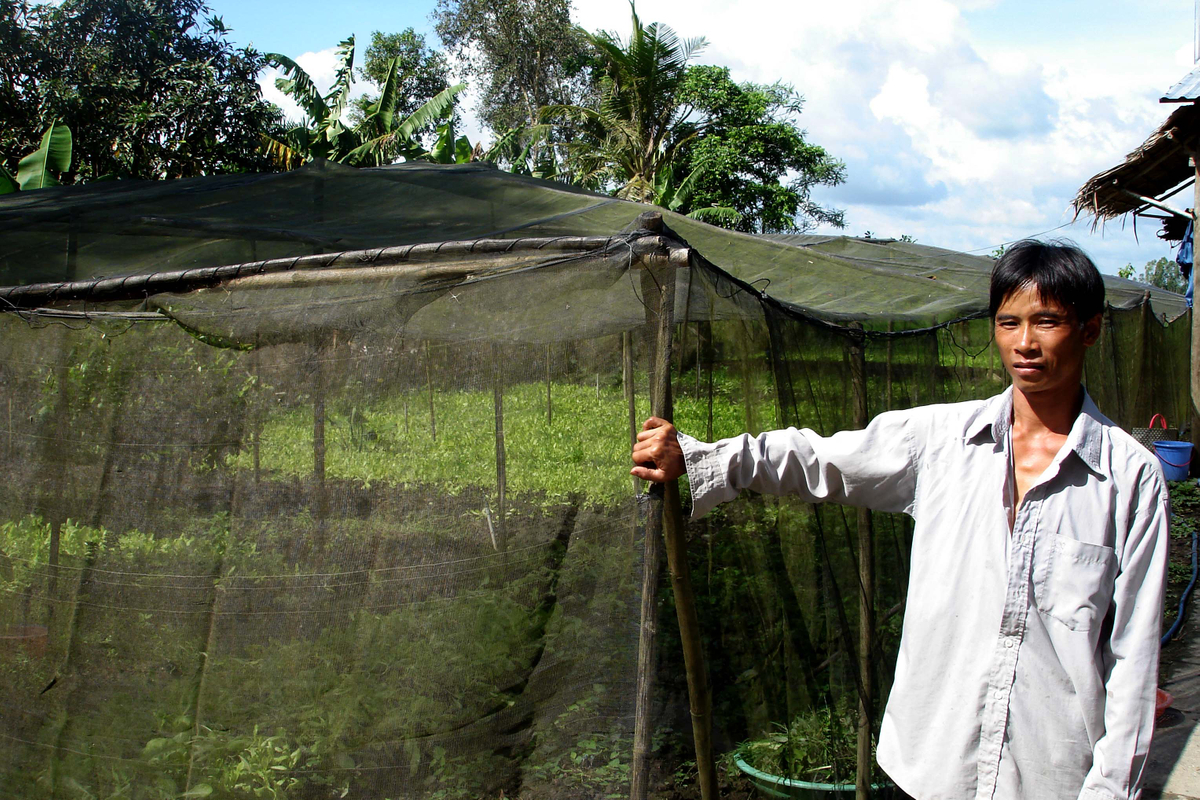To alleviate the pain behind the lush Mekong Delta

The Mekong Delta in Vietnam is a fascinating region with lush landscapes and unique river life. But it is threatened by man-made problems, climate change and poverty. How do local communities cope with these challenges? Bernard Kervyn takes us along on his journey to the field.
Every time I visit the Mekong Delta I am impressed by its flat landscape — the meandering Mekong River, the canals, the bridges and the overwhelming activities in the paddy fields. Despite its beauty, this river delta is under pressure.
The Mekong Delta is one of the most threatened deltas in terms of climate-induced sea level rise. Every year, sea water penetrates further inside the delta, reaching Can Tho city which is 60km inland. This harms all the crops, especially when the rains are insufficient or erratic — which is becoming the new normal.
But climate change is not the only reason. Human impact in the Mekong Delta is adversely changing the life of deltaic communities. The government and development organisations are trying to mitigate the problems.

Impact of interventions
In Mekong Delta, high dikes along the rivers have been made to prevent rice fields from flooding. But with the dikes blocking the fertile sediments, farmers are using more fertilisers.
The presence of industries and practice of water-intensive agriculture result in increased groundwater extraction. So much so, that the delta is sinking by 1 to 3 centimetres every year, which keeps increasing. People are pumping themselves down.
Let's not forget the impact of upstream dams, like in Laos and China. These are blocking sediments in such a way that the Mekong Delta is not naturally growing anymore. In fact, the delta is shrinking; the coastline is receding due to lack of sediments. This is harming the mangroves as well as the biodiversity along the coast.
Fish is also blocked by the dams, resulting in less food and income for fishing communities downstream.
The natural and predictable flooding and receding — called flood pulse, of the river’s waters has changed, affecting biodiversity and hence the communities that rely on it.

Seasons and their dynamics in the delta
All these large-scale dynamics have huge impact on the vulnerable communities who depend on the pulse of the river, like Dung, an enthusiastic and muscular farmer from a little village near Long My town. Dung lives by the river in a bamboo hut that looks out on the green paddy fields. In a few weeks he will be helping with the harvest. The paddy would be processed and sold as rice. Then a new cycle would start.
"It has been like this for generations," says Dung. "In the delta, time moves differently than in the city, more like a circle than a straight line: the dry and the wet season, sowing and harvesting, and balancing between salt and fresh water as part of the estuarine dynamics. It is hard to break this circle."
As a result of the big impacts, farmers like Dung have to use different techniques. They wash the soil in their fields regularly to prevent it from becoming saline because of sea water, and pump fresh water from wells. This only aggravates the problem, making the fields sink deeper. The government also promotes less intensive agriculture that uses less water and less chemicals, and salt-tolerant varieties that fare better in saline soil.
Another adaptation measure is to encourage more farmers to shift to shrimp farming. But often the water is not salty enough to grow shrimps. Besides, growing shrimp is costly and risky (one disease in your pond and your whole stock or all benefits are lost). The massive use of antibiotics in shrimp ponds is an additional source of pollution.
To find ways out of poverty
People like Dung inspire me to support vulnerable communities in the Mekong Delta for schooling, family economics and small infrastructure. I can make more impact with my non-governmental organisation Mekong Plus when I partner with a local Vietnamese NGO. That's why we collaborate closely with Anh Duong, a Vietnamese NGO. Anh Duong works with local communities and reaches the very capillaries of society.

The delta has lush vegetation all year round. Since water is always available, agriculture is very productive with high yields. The acute poverty level is very high because of the high population density. The poorest households have little land of their own and work as daily labourers, with uncertain income. The Covid-19 pandemic makes things even worse.
"We focus on the very poor people in the Mekong Delta," says Chúc, director of Anh Duong. “Around 10% of people in the delta live in poverty. They are living under $1 per person per day. Some of them live on less than half a dollar a day."
Can you imagine?
"Here, in the coastal area of the Mekong Delta we have observed an increase in saltwater intrusion over the years. This affects our rice fields. On top of this, we need a lot of fresh water to grow paddy straw mushrooms," she says.
To address some of these problems, Anh Duong raises awareness about the environment. They promote better farming techniques and provide seeds for the poorest households, and offer microcredit where necessary.

Involving the community
Anh Duong also works with schools. Children collect plastic waste and clean up their neighbourhoods. The schools sell the plastic waste to recyclers.
"We are constantly in dialogue with the authorities to find the best solutions. They facilitate our work among the poor in the Mekong Delta," says Chúc.
"We use two tools: microcredit with technical support; and help children get educated,” she says. “Education is expensive and more than 25% do not even complete high school, they are bound to end up as one more generation mired in poverty,"
The NGO trains farmers in best practices in agriculture. “We try to convince the farmers that they will need lesser resources to practise sustainable agriculture and it will increase their profit even in the short term."
I hope these interventions will help the vulnerable communities to break the cycle of poverty, and the lush landscape around them will help them prosper.






Member discussion